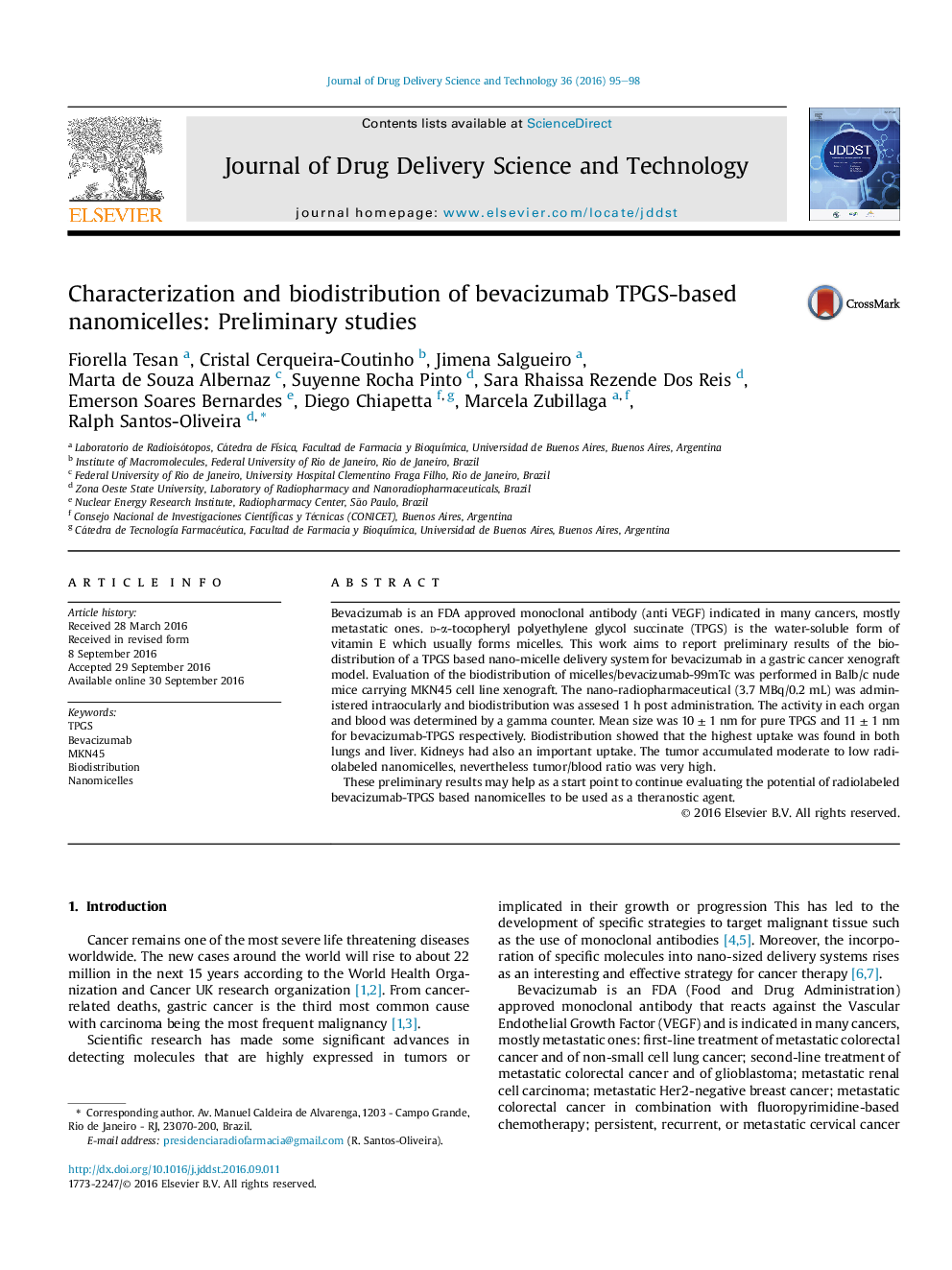| Article ID | Journal | Published Year | Pages | File Type |
|---|---|---|---|---|
| 5548251 | Journal of Drug Delivery Science and Technology | 2016 | 4 Pages |
Bevacizumab is an FDA approved monoclonal antibody (anti VEGF) indicated in many cancers, mostly metastatic ones. d-α-tocopheryl polyethylene glycol succinate (TPGS) is the water-soluble form of vitamin E which usually forms micelles. This work aims to report preliminary results of the biodistribution of a TPGS based nano-micelle delivery system for bevacizumab in a gastric cancer xenograft model. Evaluation of the biodistribution of micelles/bevacizumab-99mTc was performed in Balb/c nude mice carrying MKN45 cell line xenograft. The nano-radiopharmaceutical (3.7 MBq/0.2 mL) was administered intraocularly and biodistribution was assesed 1 h post administration. The activity in each organ and blood was determined by a gamma counter. Mean size was 10 ± 1 nm for pure TPGS and 11 ± 1 nm for bevacizumab-TPGS respectively. Biodistribution showed that the highest uptake was found in both lungs and liver. Kidneys had also an important uptake. The tumor accumulated moderate to low radiolabeled nanomicelles, nevertheless tumor/blood ratio was very high.These preliminary results may help as a start point to continue evaluating the potential of radiolabeled bevacizumab-TPGS based nanomicelles to be used as a theranostic agent.
Graphical abstractDownload full-size image
